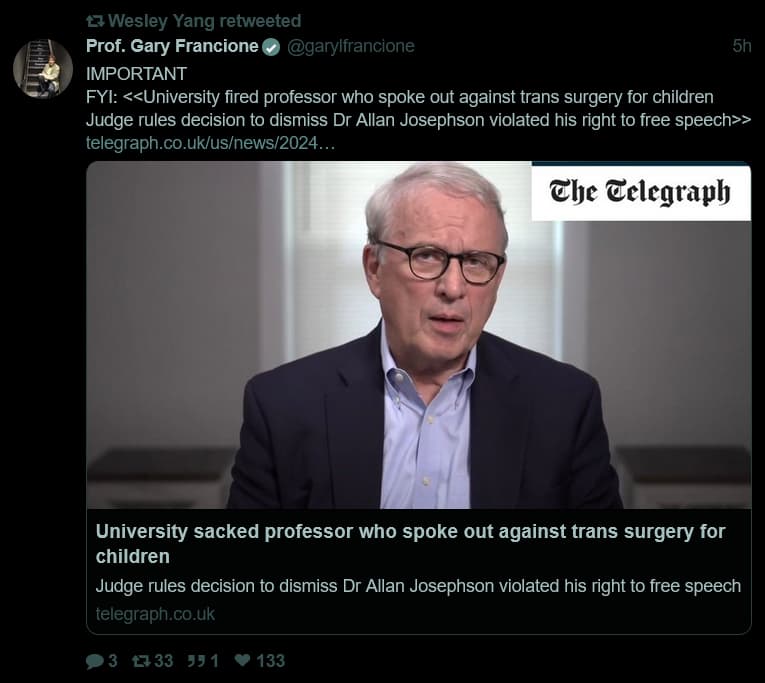Report Raises Ethical Concerns on Gender Surgeries for Destitute Patients, Citing 'Gross Mutilation' and Data Gaps

Wesley Yang, a prominent commentator, recently shared an account from an individual identified as "Smith," who described serving as a confessor to gender surgeons. This account detailed alarming ethical concerns regarding vaginoplasties performed on highly vulnerable transgender female patients in Portland, Oregon. The allegations highlight issues of patient destitution, perceived surgical outcomes, and a striking lack of comprehensive data.
According to Smith's testimony, some surgeons expressed concerns about their patients, particularly those on public insurance, stating:
"many of my trans female patients who come in on public insurance are making a mistake."
Smith further recounted a surgeon describing patients as so emaciated that their ribs were visible, indicating they were:
"literally operating on homeless people."
The account emphasized that many of these homeless individuals were not native Oregonians but had been transported to the area, leaving them:
"totally, totally homeless and destitute."
The narrative escalated with descriptions of the surgical outcomes, which Smith characterized as:
"gross mutilation"
rather than proper vaginoplasties. Smith relayed an interaction with a surgeon who presented:
"horrible pictures to look at"
showing the results of these procedures. The surgeon reportedly struggled emotionally while presenting these images, acknowledging potential negative outcomes.
During this discussion, Smith, who was personally struggling with addiction during the COVID-19 pandemic, realized the experimental nature of the procedures. Smith quoted the surgeon admitting:
"we don't have enough data,"
leading Smith to conclude:
"I realize I am a guinea pig."
The surgeon reportedly confirmed this insight by responding:
"that's very insightful of you."
This account brings to light critical ethical considerations within gender-affirming care, particularly concerning informed consent and patient vulnerability. The alleged practices raise questions about the adequacy of care for individuals experiencing extreme homelessness and destitution, who may lack the resources or stability to provide fully informed consent or manage post-operative care. The claims underscore a broader debate about the long-term data and ethical standards in rapidly evolving medical fields.